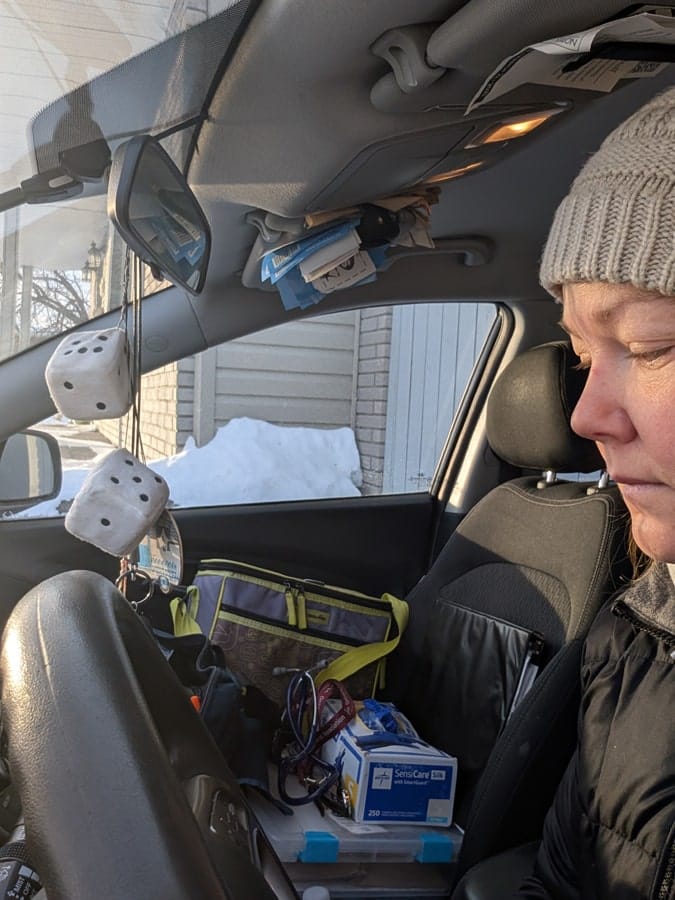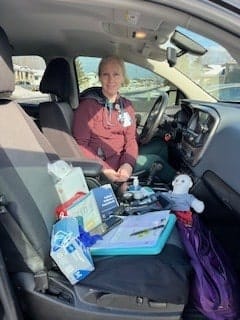Home-care nurses are essential to our health-care system, but they’re some of the lowest paid in the province. Hear from two home-care nurses from the Victorian Order of Nurses (VON) on what their day-to-day is like (some members have chosen to remain anonymous).

Emily Foulds

Farra Taipale
“Home care is treated like the black sheep of nursing. Our wages are a fraction of what an RN with the same years of experience would be making in almost any other setting. This was a sacrifice I lived with because I loved what I did. However, the expectation to take on more clients with more complex needs and fewer nursing staff made the job almost unbearable. My eight-hour shifts turned into 10-hour shifts and then over the pandemic, they were creeping up to 12-hour shifts. The expectation was that we would see these clients because if we didn't, then who would? It got to the point where I wasn’t making it home in time to say goodnight to my kids. I reached the point of burnout and exhaustion that I had never experienced in any other RN role over my 10-plus year career.”
“I started working for VON in 2015, where I was an RPN to start. I upgraded to RN in 2021 and when I made the switch, I was offered less money than I was making as an RPN. I feel I’m working longer hours for less pay and less take-home money. I enjoy working in the community, but it’s hard to stay at a company if you’re not being paid as a respected nurse.”
Not only do I practise ‘real nursing’ every shift, I do it alone.
“As a student, I accumulated more than $10,000 in loans. In the local hospital, RNs in the same class make $39/hour versus home care nurses’ hourly salary of $28. My debt, along with the low salary of home care, makes it difficult to afford basics like food. I’m unable to buy a house or pay most rents because of the lower wages home-care nurses earn.”
“As a nursing student, I was always taught that community nurses are less skilled and don’t practice ‘real nursing.’ I chose to work in hospitals, schools, long-term care and even for a [then named] Local Health Integration Network before finding my place in home care. Not only do I practise ‘real nursing’ every shift, I do it alone. I can’t shout down the hall for my coworker to help when things go wrong or when I need support with a critical problem. I don’t have other health disciplines at my fingertips to consult to get answers to my questions. I can’t simply go on a lunch break and let another nurse deal with my patients. It’s all on me. Critical thinking, advocating, problem-solving and working under pressure to be the one nurse to help and resolve issues is a huge responsibility.”
If you agree with these ONA members at VON, support their campaign for fair wages and better benefits.
As a nurse and health-care professional, no one knows better than you what it’s really like to work in terrible conditions. Long hours. Low pay. Disrespect. Sometimes you do form genuine connections and see the difference you make, but that can feel harder to come by when your value is constantly overlooked.
Your reality is tough, but then again so are you.
Stories from the Streets is a chance to tell your story and hear your fellow members tell theirs about what life is like:
This is a standard popup that can be repurposed for general site-wide messages.
We use cookies to improve your experience on our website. To learn more, read our privacy policy.